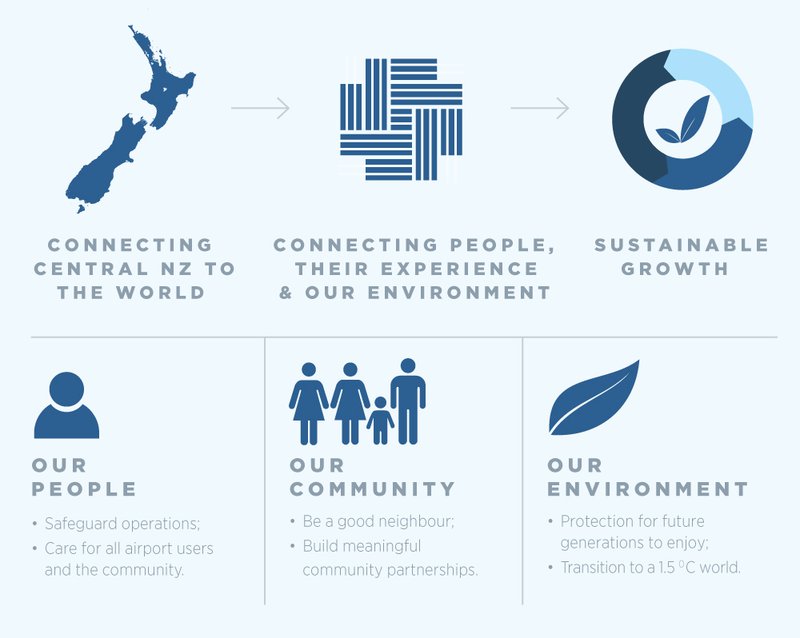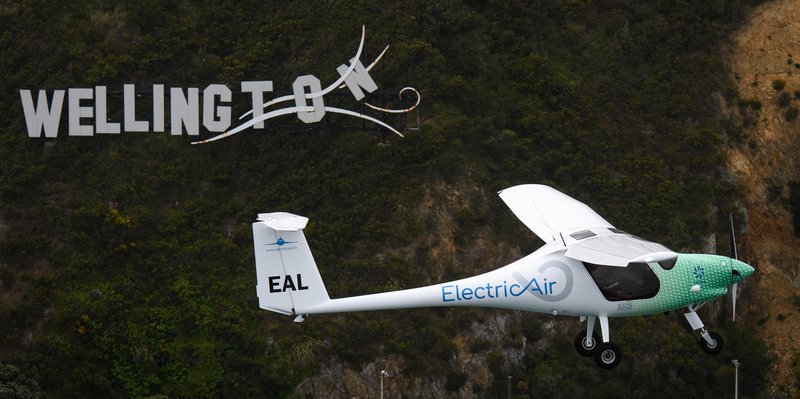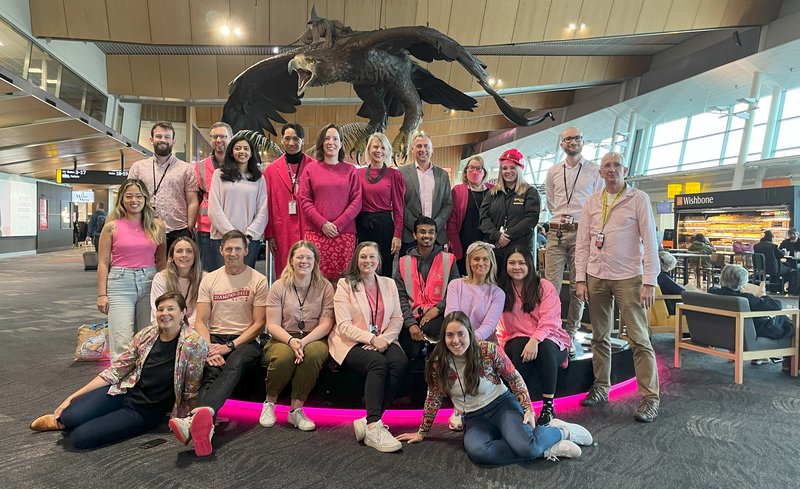Our Kaitiakitanga work program

At Wellington Airport we are deeply conscious of our responsibilities to our people, community, and wider environment. Our Kaitiakitanga work programme embeds this into everything we do.
For us, it is more than just talk. We have a range of specific targets for reducing our environmental footprint, and we measure and report our performance annually.
Equally important is our contribution to the Wellington community and New Zealand economy, and the people we employ.

Reducing our footprint is an essential challenge of our business given how vital aviation is to Wellington and New Zealand.
As the international gateway for Central New Zealand, we connect people with loved ones and support thousands of businesses across our region. In a typical year Wellington depends on its airport for 14,500 jobs, $2b in economic output, and around six million passenger journeys.

2030 TARGETS
We have a goal of net zero emissions from our operations by 2030 and to reduce our waste to landfill, water use and electricity intensity by 30%. Further detail on these targets, how we will meet them and our results so far are outlined in our Kaitiakitanga Report.
Emissions from our direct operations have reduced by 43% since 2017, increasing to 73% when renewable energy certificates are taken into account. We are on track to achieve net zero emissions by 2028, two years ahead of schedule.
Our key steps to achieve net zero, in consultation with airline partners, include:
- Tracking against transparent, science-based targets
- Reducing overall energy use by 30% by 2030
- Improving the efficiency of heating, cooling and lighting systems
- Prioritise replacing our gas boilers and moving to 100% renewable energy sources
- Replacing our vehicle fleet with electric vehicles
- Offsetting any residual emissions
As part of this plan Wellington Airport is aiming for absolute zero emissions (no carbon output at all) by 2050.
Some of our achievements so far include:
- Achieving Level 2 (Reduction) Certification from the Airport Carbon Accreditation programme.
- Rated third best participating airport in the world for performance and management of environmental, social and governance by GRESB assessment.
- Converting $100 million of bank facilities into sustainability linked loans.
- Partnering with electric aircraft manufacturer Heart Aerospace alongside other New Zealand airports and airlines to speed up the decarbonisation of aviation.
- Managing our buildings’ energy consumption under the guidance of our Energy Committee; we have reduced energy usage by 14.7% in our main terminal building.
- Encouraging suppliers and tenants to replace single-use plastics with compostable alternatives - reducing the operational waste we send to landfill
- Creating our community garden in Rongotai to recycle food waste into compost.
- Improving our public transport options and enhancing biking facilities.
- Partnering with Trees that Count, Te Motu Kairangi and Predator Free Wellington to support the regeneration of the Miramar Peninsula.
- Supporting our airline partners in initiatives to reduce their fuel consumption and carbon emissions. This includes hosting the first-ever trial of hydrogen at a New Zealand airport, being selected by Air New Zealand as the home base for its first all-electric aircraft service, and welcoming our first shipment of Sustainable Aviation Fuel (SAF).
Emissions monitoring
Wellington Airport continuously monitors the emissions generated from our airport precinct, including the operation of our own infrastructure, electricity use and processes.
You can find detailed reporting of these and our transition plans here. An overview of emissions from our direct operations is below:

*Note that limited Scope 3 emissions represent pre-offset amounts. Due to the Airport’s use of the Air New Zealand’s Voluntary Emissions Contribution Programme to offset all staff travel, these emissions are effectively zero.

Governance and oversight of sustainability
Our Board maintains accountability and oversight of the Airport’s ESG (Environmental, Social and Corporate Governance) developments.
At a management level, the Airport’s Executive team has day-to-day responsibility for identifying and managing climate-related risks and opportunities.
ESG work programme development is the responsibility of the Sustainability Manager, in partnership with the Executive Team. Progress and workstreams are coordinated and monitored through the Executive Kaitiakitanga Committee. The Kaitiakitanga Committee meets monthly to track progress against key initiatives and targets.
The Board receives regular reporting and updates from the Executive-led Kaitiakitanga Committee, Sustainability Manager and Corporate Affairs team.
Alongside reporting from the Executive Team, our Board has regularly sought views from external experts.
The Board frequently reviews the Airport’s approach for ESG management, and ESG criteria are included in Executive incentive schemes.
The Board regularly reviews ESG risks and Climate-related risks via the Audit and Risk Committee.